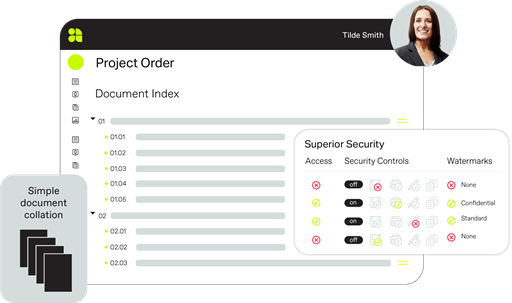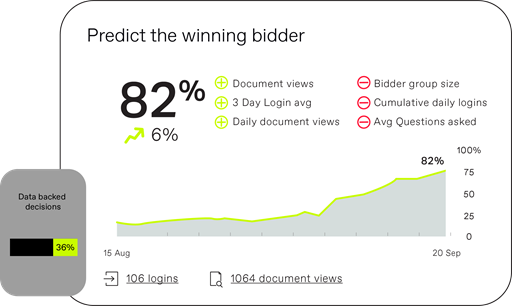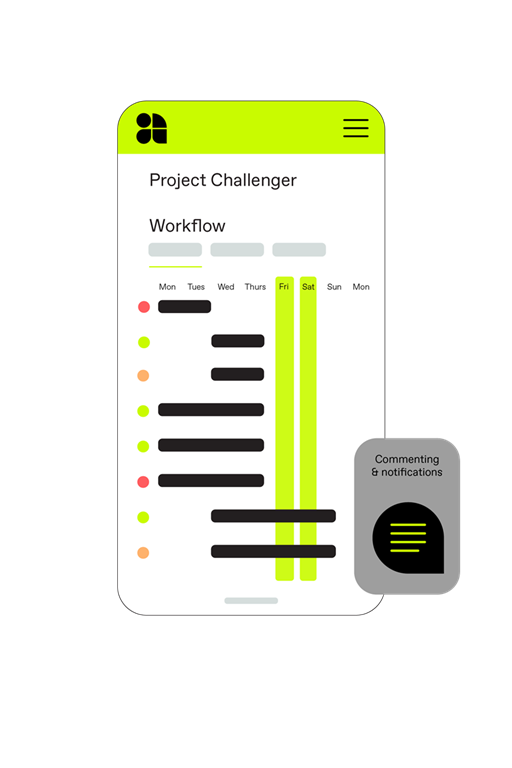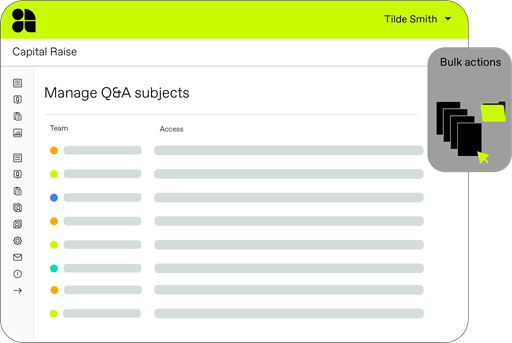Are you ready for your next deal?
Virtual Data Rooms
Here’s all you need to know about Virtual Data Rooms and how they are key to business success. Ansarada are here to unveil the myths & mysteries of Virtual Data Rooms, answer your frequently asked questions, compare providers, and take you through important checklists for companies and advisors.
Drive smarter outcomes
Confidently get ready for and achieve critical business outcomes with the world's smartest Virtual Data Room.
What is a virtual data room?
A virtual data room (VDR) is a virtual space that acts much like a physical data room except that all data is hosted securely online with security controls over information and reporting on usage. In the days before virtual data rooms, M&A potential buyers would need to visit an actual room in person to review stacks of critical documents and paperwork. Today, multiple potential buyers can access confidential information simultaneously online.
Learn more – What is a Virtual Data Room?
Why use a virtual data room?
From M&A through capital raises, audits, strategic reviews and tenders, material outcomes depend on virtual data rooms. But data rooms aren’t created equal. What sets a modern data room apart from legacy rooms:

More than storage and file sharing
Data Room software isn’t just about collecting, collating and storing information. Modern Virtual Data Rooms integrate with other platforms to allow two-way syncing and drag-and-drop functionality that can get a room up and running in minutes. Granular access privileges, print and save controls, tracking of all actions, reporting and sophisticated Q&A enables seamless collaboration. Artificial intelligence powers and automates smart analytics on the motives and behaviour behind people’s activity.

More than manual labour and guesswork
Artificial Intelligence and automated scorecards not only automate reporting, they predict outcomes with 97% probability within seven days when using a virtual data room for selling an asset. Workflows and processes developed by experts enable advisors and companies to prepare for deals fast and get to work immediately on driving their desired outcome. This saves significant time and money compared to generic tools and processes. Pathways that are reverse engineered from thousands of deals outline what is required - in quantity and quality - in a path to follow for proven success in critical transactions and deals. Only highly advanced data rooms remove the guesswork as to what documents and steps are needed to prepare for and complete a transaction in line with an investor’s or buyer’s requirements.

Unlimited users, unlimited possibilities
Advisors can now count on Ansarada as an essential tool for total transaction management across the complete deal lifecycle - from marketing to preparation to execution and post-deal integration. The new Deal Workflow tool will keep all team members working cohesively and strategically, which is why we’ve enabled our pricing to include unlimited users. Now you can invite as many users as you like.

More than a transaction tool
Modern data rooms position you to get ready, run and realize value from more than just an M&A deal, asset sale or IPO. Companies lower the cost of ownership and leverage data room capabilities for instilling operational discipline, governance and risk management around material information necessary for audits, compliance, tenders, post deal integrations, readiness, investor reporting, board communication and more. Lack of functionality, no integration with cloud storage, complexity of use and pricing based on information limits imposed by legacy rooms - all combine to create roadblocks for companies to prepare for and achieve optimal outcomes.
Common uses for Virtual Data Rooms

Start for free today, no credit card required
Achieve better outcomes with the most advanced Virtual Data Room
- Simpler
- Smarter
- Safer
Who uses Virtual Data Rooms?
Investment bankers: Investment banking processes like IPOs demand huge amounts of information sharing.
VCs & private equity firms: Often assessing many transactions at once, VDRs facilitate the organization and sharing of reams of data.
Auditors & regulators: Regulators use the file sharing services within a secure VDR to review and audit company information.
Lawyers: Lawyers use VDR in their day-to-day job of advising corporate clients on transactions and ensuring legal compliance.
Startups: Smart startups use VDR as an online repository of important company information so that they’re always ready for a raise.
Business leaders: CFOs are able to view all critical company information at a glance within a VDR to ensure the business is always positioned for growth.
Virtual Data Room Q&A
Got a burning question about virtual data rooms? It may have been asked already before. Find all your data room questions answered right here.
Have you got the right room for the job?
Data Room Checklists
A simple guide to selecting, buying and running a virtual data room.